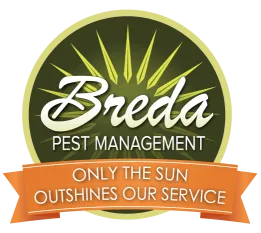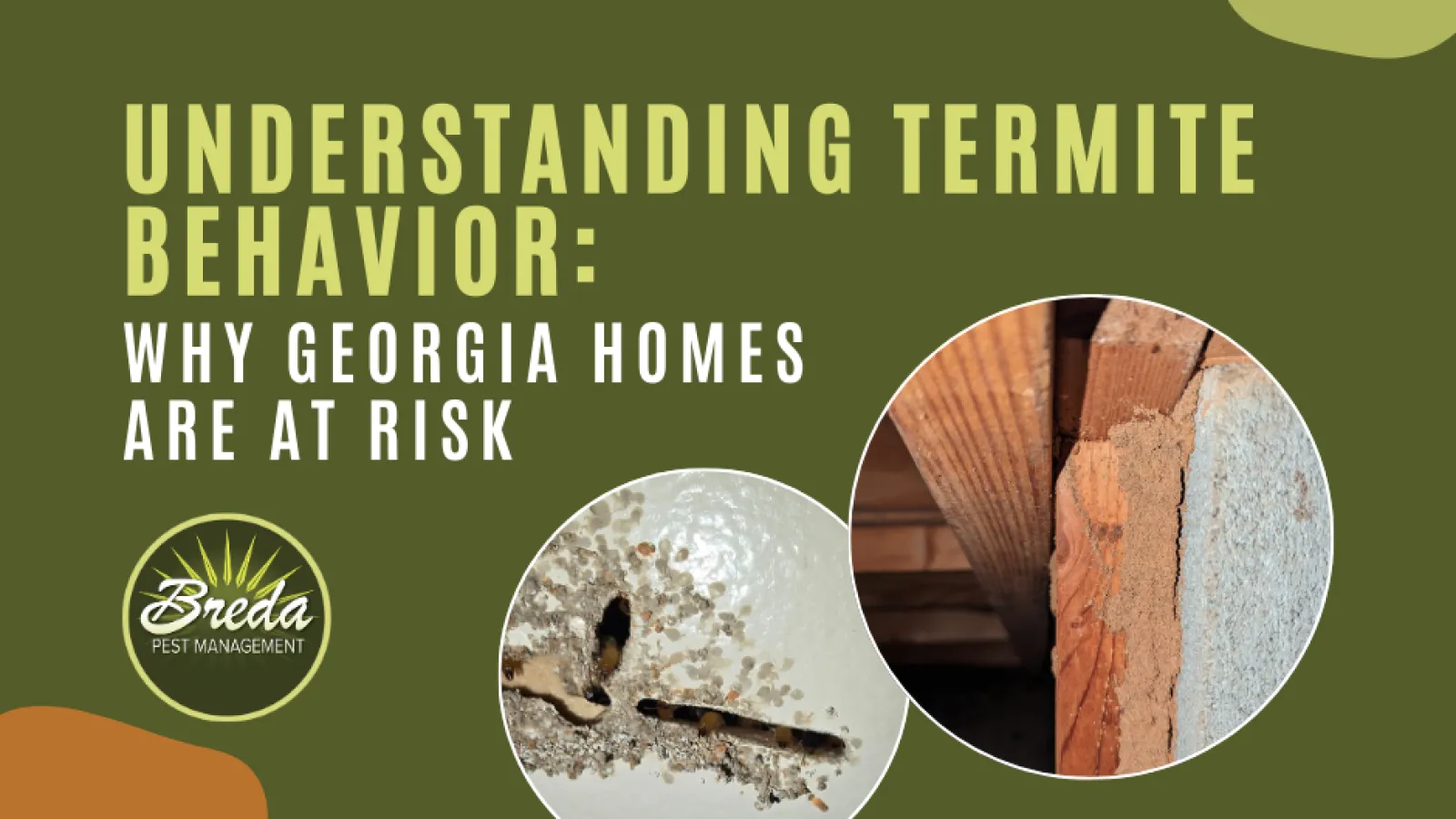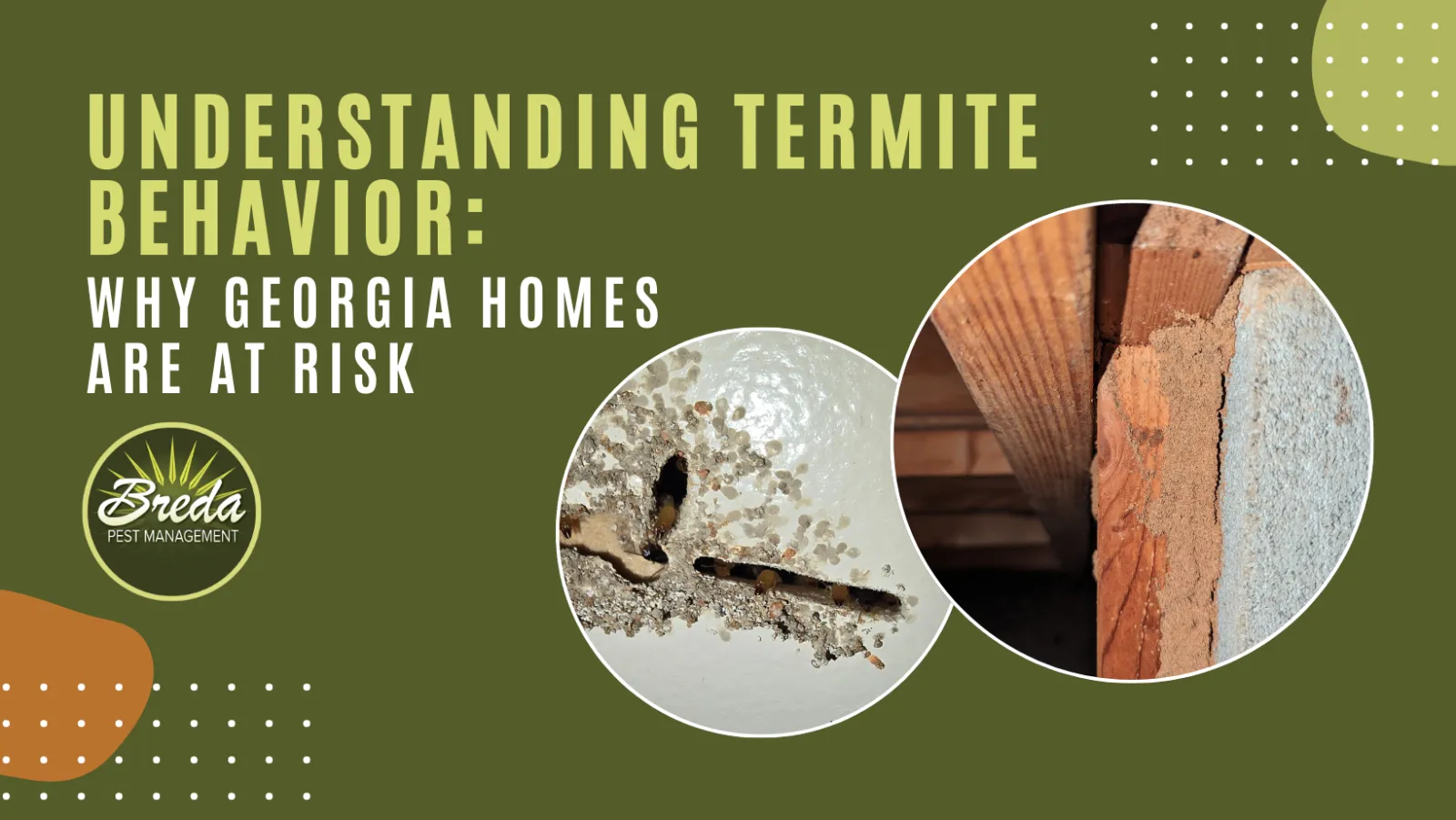
When it comes to household pests, few are as destructive and costly as termites. Known as "silent destroyers," these pests can compromise the structural integrity of your home long before their presence becomes apparent. For Georgia homeowners, understanding termite behavior is crucial. Georgia's unique climate and environment make it a prime hotspot for termite infestations, particularly from subterranean species. In this blog, we'll explore why Georgia homes are prone to termites, what signs to watch for, and how to prevent these unwelcome invaders from wreaking havoc on your property.
Termite Behavior in Georgia: An Overview
Termites are social insects that thrive in colonies, and their behavior is closely tied to environmental conditions. In Georgia, the warm, humid climate creates the perfect habitat for termites, especially subterranean termites, which are the most common species in the state. These pests feed on cellulose, a component found in wood and other plant materials, making homes with wooden structures or damp conditions highly susceptible to infestation.
Unlike other pests, termites work silently and steadily. They build mud tubes to protect themselves from predators and dehydration as they move between their colonies and food sources. These mud tubes often go unnoticed, allowing termites to cause significant damage over time.
Why Georgia Homes Are Prone to Termites
Several factors make Georgia homes especially vulnerable to termite infestations:
1. Ideal Termite Environments in Georgia
Georgia's warm temperatures and high humidity levels provide the ideal conditions for termite colonies to thrive year-round. Subterranean termites, in particular, rely on moisture to survive and reproduce. The state's frequent rainfall contributes to damp soil, which attracts termites and facilitates their underground tunneling activities.
2. Abundant Vegetation and Older Homes
Georgia's lush vegetation provides an ample supply of cellulose-based food sources for termites. Homes surrounded by trees, shrubs, or gardens are at a higher risk. Additionally, older homes in the state are often constructed with wooden foundations or structural elements, which are more prone to moisture damage and termite infestations.
3. Climate Impact on Termite Activity in Georgia
Termite activity is heavily influenced by the climate. In Georgia, the consistent warmth allows termites to remain active throughout the year, unlike in colder regions where they become dormant during winter. This means Georgia homeowners must stay vigilant against infestations at all times.
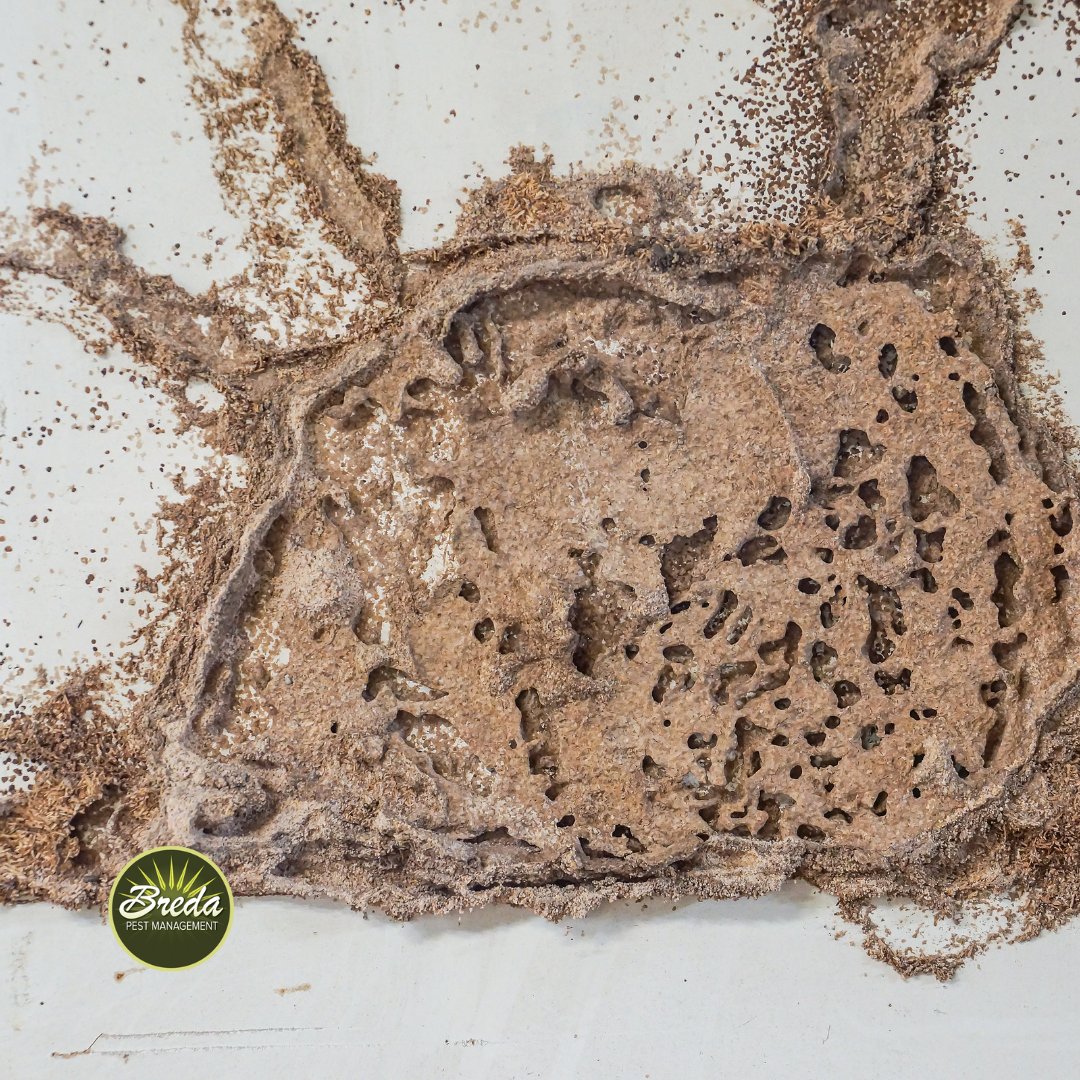
Early Signs of Termite Infestation in Georgia Homes
Catching termites early is key to minimizing damage. Here are some common signs of termite infestations that Georgia homeowners should be aware of:
1. Hollow Wood Caused by Termites
Tap on wooden structures around your home. If the wood sounds hollow, termites may have eaten through the inside. This is one of the most common early signs of termite damage.
2. Mud Tubes and Other Termite Warning Signs
Subterranean termites construct mud tubes as protective pathways between their colonies and food sources. These tubes are often found along foundations, walls, or crawl spaces.
3. Discarded Wings
After swarming, reproductive termites shed their wings, which can accumulate near windowsills, doorways, or other entry points.
4. Small Holes in Drywall
Tiny pinholes in walls may indicate termites tunneling through your home's structure. These holes are often accompanied by faint trails of dirt or wood dust.
5. Sagging Floors or Cracked Paint
As termites compromise the structural integrity of your home, visible signs such as sagging floors, warped walls, or cracked paint may appear.
Moisture and Termite Infestations
Moisture is one of the primary factors that attract termites. Subterranean termites, in particular, rely on damp conditions to survive. Here are some ways moisture contributes to infestations:
Leaky Pipes or Roofs: Water leaks create damp conditions that termites find irresistible.
Poor Drainage: Improper drainage systems can lead to water pooling around your home's foundation, creating a moist environment ideal for termites.
High Humidity: Georgia's naturally high humidity levels exacerbate the problem, making it even more important for homeowners to address moisture issues promptly.
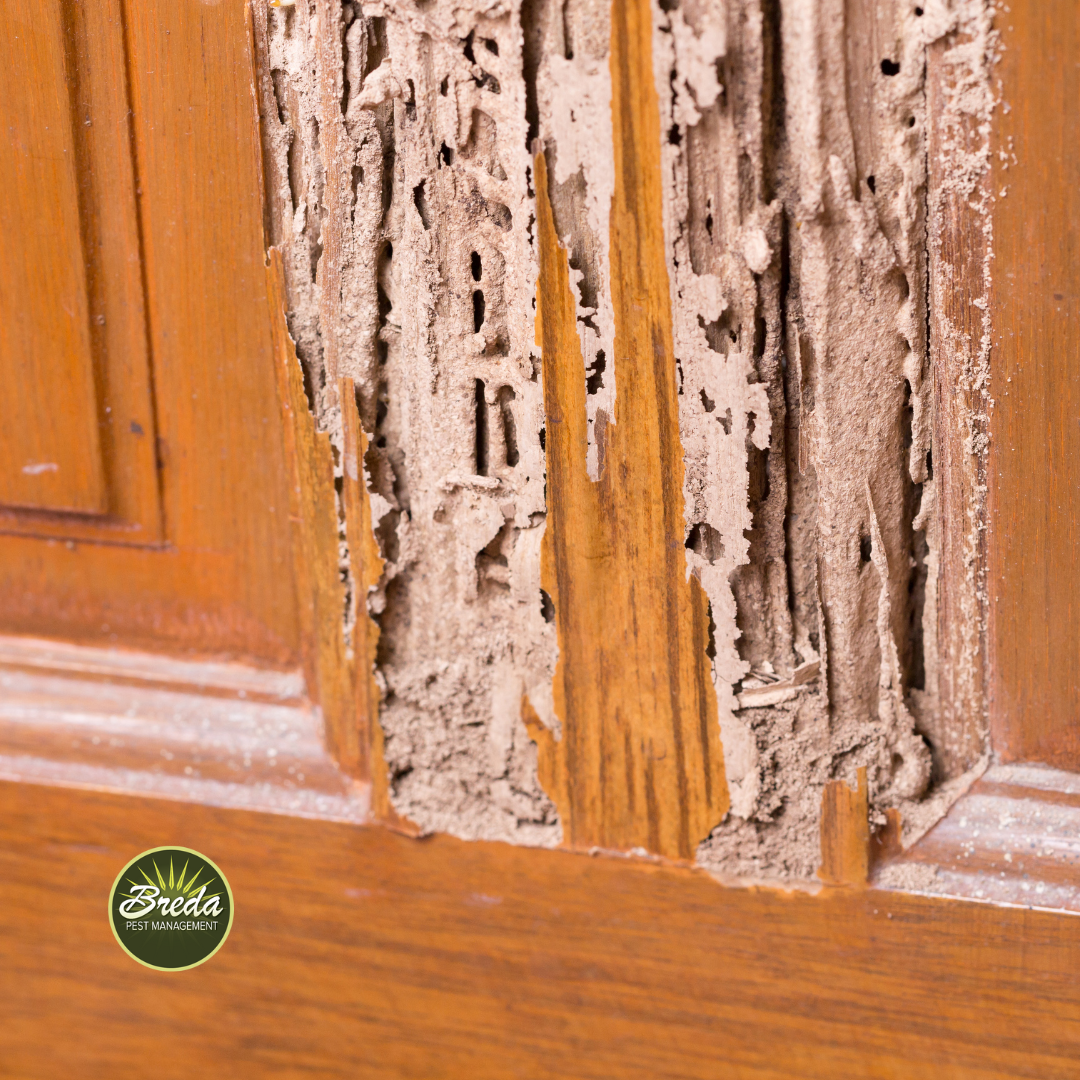
Preventing Termite Damage in Georgia
Taking preventative measures is the best way to protect your home from termites. Here are some practical steps Georgia homeowners can take:
1. Eliminate Moisture
Fix leaky pipes, roofs, and faucets promptly.
Ensure proper drainage around your home's foundation.
Use dehumidifiers in damp areas like basements and crawl spaces.
2. Seal Entry Points
Inspect your home for cracks in the foundation, gaps in siding, or spaces around utility lines. Seal these entry points to keep termites out.
3. Proper Landscaping
Avoid wood-to-soil contact by keeping mulch, firewood, and other cellulose materials away from your home's foundation. Trim vegetation to improve airflow and reduce moisture buildup.
4. Regular Inspections
Schedule annual termite inspections with a trusted pest control professional. Early detection can save you from costly repairs.
Professional Solutions for Termite Risks in Georgia
If you suspect a termite infestation, professional termite extermination services offered by BREDA Pest Management in Georgia are your best option. We use advanced tools and techniques to eliminate termites and prevent future infestations. Some common methods include:
Liquid Treatments: Products like Termidor create a barrier around your home, killing termites on contact and preventing new colonies from forming.
Baiting Systems: These systems attract termites with bait that spreads treatment throughout the colony.
Infrared Inspections: Advanced tools detect termite activity behind walls without invasive methods.
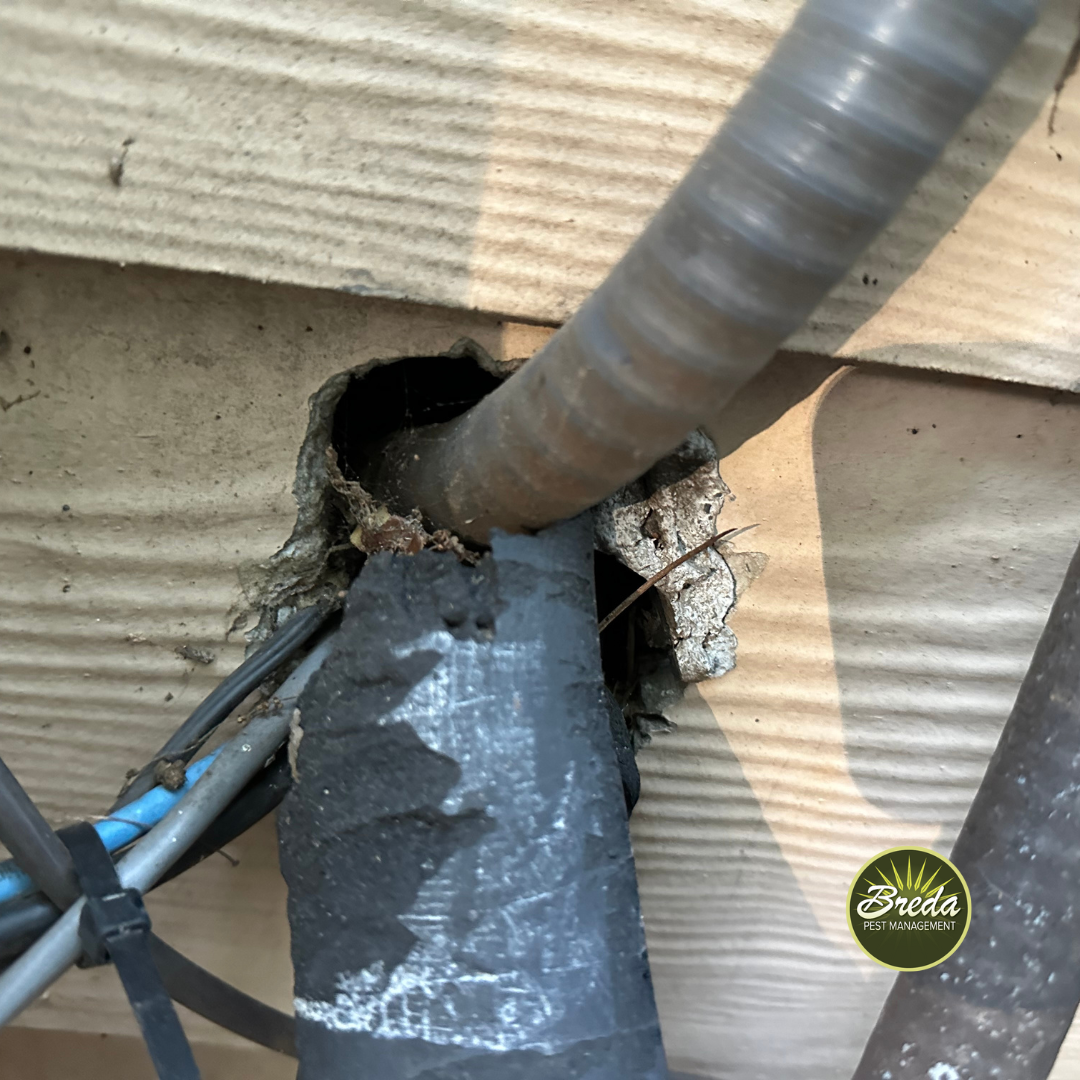
Cost of Termite Damage and Treatment
Termite damage can range from minor to severe, and the repair costs vary accordingly:
Minor Repairs: Fixing small holes or cosmetic damage may cost a few hundred dollars.
Structural Repairs: Severe infestations that compromise beams, flooring, or walls can cost $12,000 or more.
Professional Extermination Services: Treatments typically range from $600 to $2,500, depending on the size of the infestation and the method used.
While these costs may seem high, regular inspections and preventative measures can save you from more significant expenses in the long run.
Affordable Termite Treatment Options in Georgia
Many pest control companies in Georgia, like BREDA Pest Management, offer affordable termite treatment options. Look for providers that include free inspections, customized treatment plans, and warranties to ensure effective and budget-friendly solutions.
Protect Your Georgia Home from Termites
Georgia homeowners face unique challenges when it comes to termite infestations. By understanding termite behavior, recognizing the signs of infestation, and taking preventative measures, you can protect your property and avoid costly damage. Regular inspections, moisture control, and professional pest control services are essential components of a comprehensive termite prevention strategy.
Don't wait until it's too late. Take action today to safeguard your home from termites and enjoy peace of mind knowing your property is protected.
If you're tired of wondering what the pests in or around your home are doing and just want them gone, don't hesitate to give us a call. The BREDA Guarantee promises to protect your home and keep it protected—no matter the circumstances. Schedule an inspection online or give us a call at 770-466-6700.
